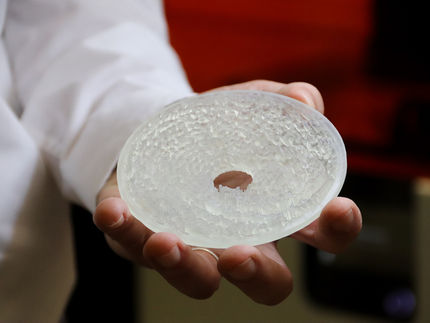Galantos Pharma Receives Research Grant
Expansion of technology platform
Galantos Pharma GmbH announced that it has been granted EUR 366.000 from Investitions- und Strukturbank Rheinland-Pfalz (ISB) GmbH, the investment and economic development bank of the German federal state of Rheinland-Pfalz. The grant was awarded under the technology development program of the ISB as a non-repayable grant covering part of the technology platform development effort of Galantos Pharma.
"The funds will allow us to expand our technology platform for the optimization of compounds targeting nicotinic acetylcholine receptors with subunit specificity and selectivity against muscarinic acetylcholine receptors", said Dr Andreas Köpke, managing director and CBO of Galantos Pharma. "These compounds have considerable use in Alzheimer's disease and other psychiatric indications."
Galantos Pharma is optimizing an approved Alzheimer's medication for improved brain penetration and reduced side effect profile as well as exploring two neuroprotective drugs - an allosteric potentiating ligand (APL) targeting nicotinic acetylcholine receptors in general (nAChRs) and a subtype-specific APL targeting the 7-subunit of nicotinic acetylcholine receptors.
APLs enhance the sensitivity of receptors and therefore overcome the well-established shortcomings of direct agonists, which are receptor desensitization and down-regulation of expression. Nicotinic acetylcholine receptors are widely distributed on neurons and other cells in the central nervous system and are involved in the regulation of cell survival and programmed cell death. It is also known that these receptors are increasingly lost in Alzheimer's Disease. Results in animal models indicate that enhancing the sensitivity of nAChRs has considerable therapeutic potential in AD and other CNS-related diseases. The lead candidate of Galantos Pharma is Memogain, a derivative of galantamine, a nicotinic acetylcholine receptor sensitizer and weak choline esterase inhibitor, which is already marketed for the treatment of AD since 2000 (EU) and 2001 (USA) respectively. Memogain offers improved efficacy at reduced adverse events and is expected to move into clinical development in Alzheimer's disease (AD) in 2009.
Most read news
Topics
Organizations
Other news from the department business & finance

Get the life science industry in your inbox
By submitting this form you agree that LUMITOS AG will send you the newsletter(s) selected above by email. Your data will not be passed on to third parties. Your data will be stored and processed in accordance with our data protection regulations. LUMITOS may contact you by email for the purpose of advertising or market and opinion surveys. You can revoke your consent at any time without giving reasons to LUMITOS AG, Ernst-Augustin-Str. 2, 12489 Berlin, Germany or by e-mail at revoke@lumitos.com with effect for the future. In addition, each email contains a link to unsubscribe from the corresponding newsletter.
























































